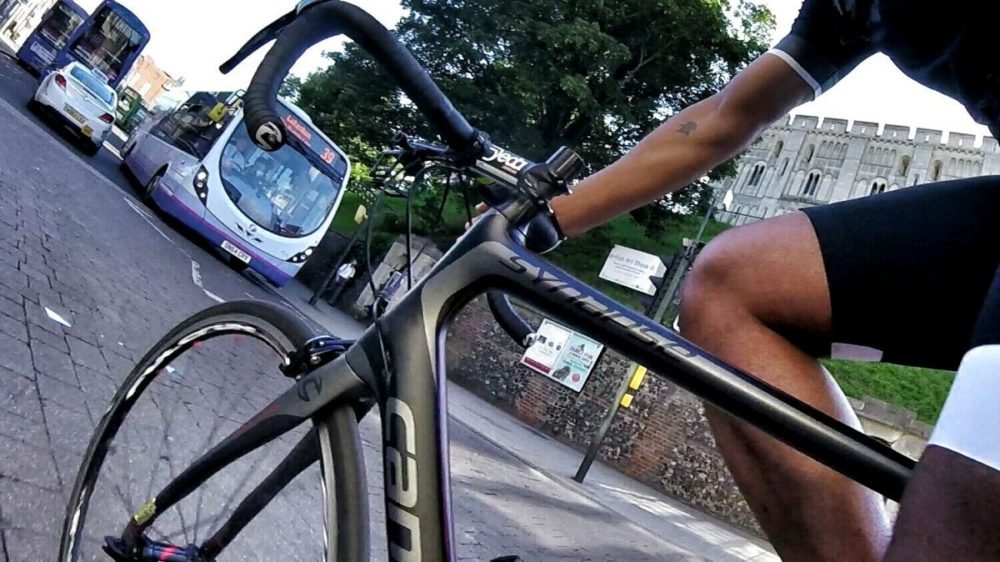Buyers Guide to Commuting by Bike
Commuting by bike is something that we would highly recommend. It will not only save you money on fuel and public transport costs, it is also a great way of getting regular exercise. But if you are thinking about or have just started cycling to work, what essentials should you be thinking about taking. Here are 7 essentials things we use and think you will need.
Bike -
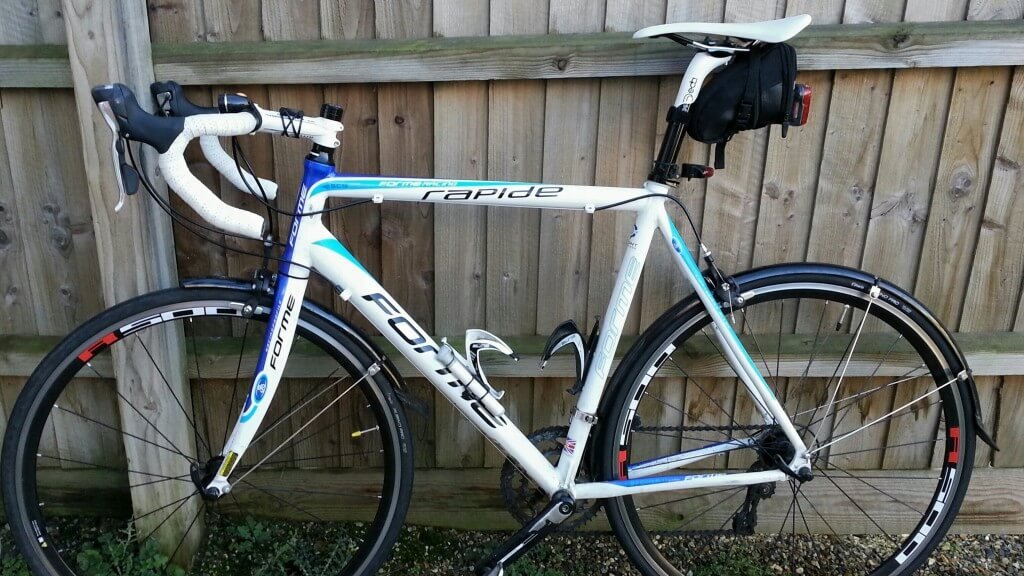 To be honest, there isn't really a correct bike for cycling to work and it will come down to personal preference. Hybrid (or commuter) bikes are ideal for cycling to work but many cyclists may still choose to ride their mountain bike or road bike - See our Buyers Guide to Bikes for some of the different options available. If you have made the decision to cycle to work and you are deciding which type of bike you should use for your commute, the main thing to think about is the route you will take. If your commute will take you off road or via cycle-tracks, bridleways or even woodland, you should consider something like a mountain bike or maybe a cyclo-cross bike. These bikes are designed to cope with the impact of rough terrain. Some hybrid bikes with wider tyres may also be suitable but you should ask you retailer if you are unsure. However, if the majority of your journey to work will be via tarmac'd roads, you may want to think about something a lighter and a little faster like a road bike or a lightweight hybrid (often called a city bike).
To be honest, there isn't really a correct bike for cycling to work and it will come down to personal preference. Hybrid (or commuter) bikes are ideal for cycling to work but many cyclists may still choose to ride their mountain bike or road bike - See our Buyers Guide to Bikes for some of the different options available. If you have made the decision to cycle to work and you are deciding which type of bike you should use for your commute, the main thing to think about is the route you will take. If your commute will take you off road or via cycle-tracks, bridleways or even woodland, you should consider something like a mountain bike or maybe a cyclo-cross bike. These bikes are designed to cope with the impact of rough terrain. Some hybrid bikes with wider tyres may also be suitable but you should ask you retailer if you are unsure. However, if the majority of your journey to work will be via tarmac'd roads, you may want to think about something a lighter and a little faster like a road bike or a lightweight hybrid (often called a city bike).
Helmet -
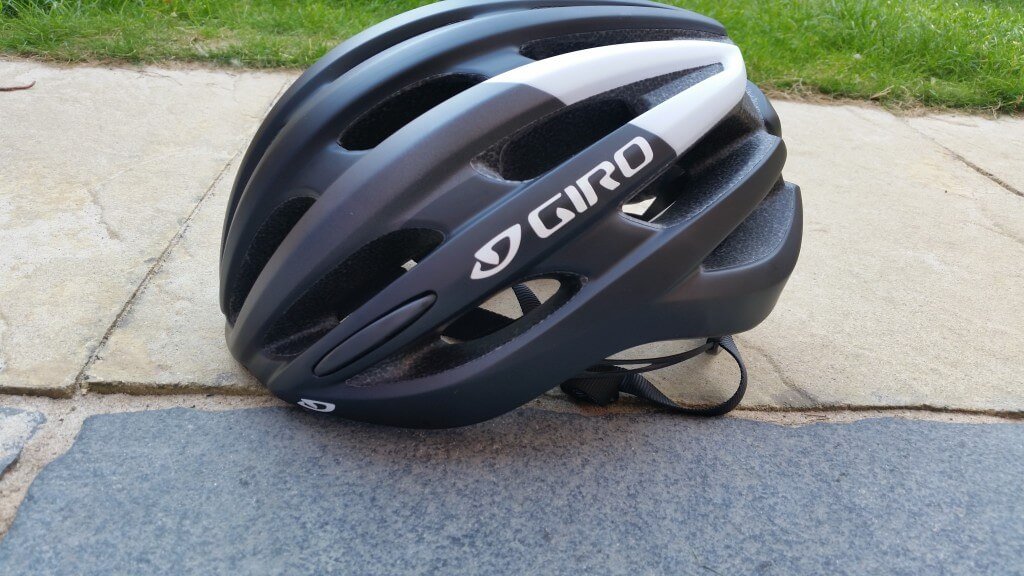 Cycle helmets have always been an item of some debate. It seems you are either for wearing one or against. At All About The Ride, we never ride with out a cycle helmet and would always recommend wearing one. This is especially the case when it comes to commuting. A cycle helmet is designed to take protect your head from the impact of a fall or collision. The main debate is about how much protection they actually give you - but is it really worth taking the risk of not wearing one? With so many different manufacturers, shapes and colours on the market, everyone should be able to find a cycle helmet to suit them. Prices will vary but you don't need to get a bank loan to get a good quality cycle helmet.
Cycle helmets have always been an item of some debate. It seems you are either for wearing one or against. At All About The Ride, we never ride with out a cycle helmet and would always recommend wearing one. This is especially the case when it comes to commuting. A cycle helmet is designed to take protect your head from the impact of a fall or collision. The main debate is about how much protection they actually give you - but is it really worth taking the risk of not wearing one? With so many different manufacturers, shapes and colours on the market, everyone should be able to find a cycle helmet to suit them. Prices will vary but you don't need to get a bank loan to get a good quality cycle helmet.
Bags/Rucksack -
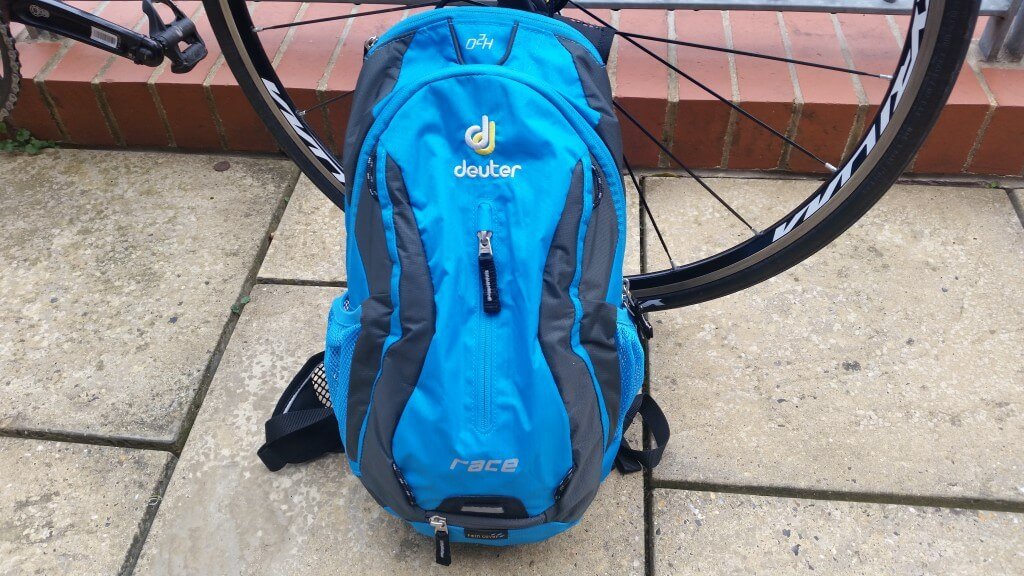 If you are planning to cycle to work on a regular basis, it is worth thinking about taking your change of clothes and other essentials in at the beginning of the week. This will save you having to carry a heavy bag to work with you on a daily basis. But should you need to take a bag with you, the most common option is a rucksack/backpack. But with literally hundreds available, there are things worth considering. It is easy to just go and buy a big bag for everything need, but remember you will have to ride with this on your back. Leaving heavier items like shoes and jackets at work will save you a lot of weight and potential back pain. It is also worth looking for something with breathable shoulder straps. Doesn't matter how fast you ride, your rucksack straps will absorb sweat. This also goes for the back panel too. But some manufactures have over come this by adding foam padded ridges to which allow airflow between the bag and your back. Another thing worth considering (and we'd recommend) is a waterproof rain cover. Again, some high-end backpacks have this included in a concealed pocket but if not, most cycle stores will them. Something hi-viz and (or) reflective is highly recommended.
If you are planning to cycle to work on a regular basis, it is worth thinking about taking your change of clothes and other essentials in at the beginning of the week. This will save you having to carry a heavy bag to work with you on a daily basis. But should you need to take a bag with you, the most common option is a rucksack/backpack. But with literally hundreds available, there are things worth considering. It is easy to just go and buy a big bag for everything need, but remember you will have to ride with this on your back. Leaving heavier items like shoes and jackets at work will save you a lot of weight and potential back pain. It is also worth looking for something with breathable shoulder straps. Doesn't matter how fast you ride, your rucksack straps will absorb sweat. This also goes for the back panel too. But some manufactures have over come this by adding foam padded ridges to which allow airflow between the bag and your back. Another thing worth considering (and we'd recommend) is a waterproof rain cover. Again, some high-end backpacks have this included in a concealed pocket but if not, most cycle stores will them. Something hi-viz and (or) reflective is highly recommended.
Bike Lights -
 This goes without saying, especially if you are commute in the dark or even in the daytime - use bike lights. Whatever time of day you are cycling, if you are on the road you need to be seen. Bike lights come in all shapes, sizes and beam-strengths. Prices can vary from a few pounds to a few hundred pounds. The things you need to consider are the route you take to and from work and the time of day you will be riding. Some people may need lights that will let them see where they are riding if they live out in the countryside. But if you are commuting in urban areas with streetlights, you may be fine with less powerful lights that simply allow other road users to see you. We use small safety bike lights on every ride but if you're commuting at night or in the Autumn or Winter when it starts to get dark earlier - it's worth investing in a decent set of bike lights. Many of the main manufactures such as Lezyne, CatEye and Exposure offer lights that are USB rechargeable. This means that you can charge them with a power lead or plug them into your computer to charge them whilst are work.
This goes without saying, especially if you are commute in the dark or even in the daytime - use bike lights. Whatever time of day you are cycling, if you are on the road you need to be seen. Bike lights come in all shapes, sizes and beam-strengths. Prices can vary from a few pounds to a few hundred pounds. The things you need to consider are the route you take to and from work and the time of day you will be riding. Some people may need lights that will let them see where they are riding if they live out in the countryside. But if you are commuting in urban areas with streetlights, you may be fine with less powerful lights that simply allow other road users to see you. We use small safety bike lights on every ride but if you're commuting at night or in the Autumn or Winter when it starts to get dark earlier - it's worth investing in a decent set of bike lights. Many of the main manufactures such as Lezyne, CatEye and Exposure offer lights that are USB rechargeable. This means that you can charge them with a power lead or plug them into your computer to charge them whilst are work.
* AATR Tip: Carry a (cheap) backup set of safety or auxiliary light in case your main set of lights fail or you forget to charge them. Having been there it is something we'd recommend
Tools, Repair Kit & Pump -
![20150410_074133[1]](http://static1.squarespace.com/static/626bcfe2b8fc36565399e30d/626c0049a7cf5201cb216e8f/626c00bea7cf5201cb2187d2/1651245246024/20150410_0741331-1024x576.jpg?format=original) If this list was in order of importance then these would be somewhere near the top. If you are going to cycle (commuting or otherwise) - you should be carrying essential tools with you in case of a breakdown or mechanical fault. You may only have to ride a short distance to your place of work. Regardless of how far your commute is, punctures happen and whilst getting one is a real pain in the pedals, if you have the proper tools for the job you can be riding again pretty soon. Check out our Cycle Survival Kit for a full list of kit we'd recommend carrying on longer rides. For commuting however, you should be at least carrying a multi-tool, puncture repair kit and (or) spare inner tube and a pump. This can all be carried in a seat pack (saddle bag), jersey pocket or rucksack.
If this list was in order of importance then these would be somewhere near the top. If you are going to cycle (commuting or otherwise) - you should be carrying essential tools with you in case of a breakdown or mechanical fault. You may only have to ride a short distance to your place of work. Regardless of how far your commute is, punctures happen and whilst getting one is a real pain in the pedals, if you have the proper tools for the job you can be riding again pretty soon. Check out our Cycle Survival Kit for a full list of kit we'd recommend carrying on longer rides. For commuting however, you should be at least carrying a multi-tool, puncture repair kit and (or) spare inner tube and a pump. This can all be carried in a seat pack (saddle bag), jersey pocket or rucksack.
* AATR Tip: if you are new to commuting by bike or cycling in general, it's a good idea to practice repairing a puncture or changing an inner tube at home a few times before you start commuting on a regular basis
Waterproof Jacket -
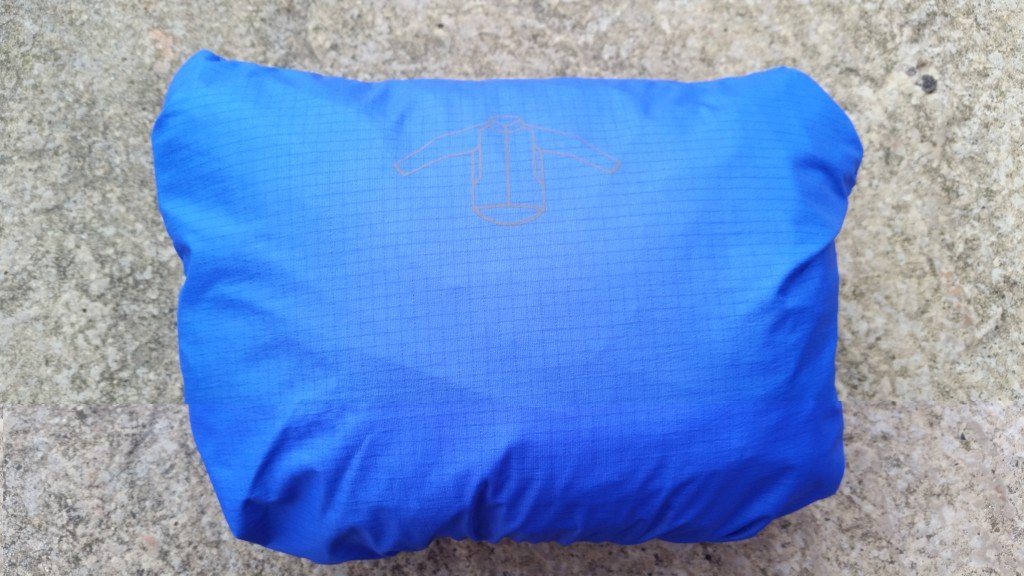 Lets face it, the weather in the UK is pretty unpredictable. Even checking the weather forecast is not a guarantee of avoiding a random drenching. With this in mind, you should carry some sort of water or showerproof jacket with you. For most of the year you ideally want something that is packable so it can be carried in your bag or jersey pocket (depending on your chosen commuter-wear). The most important thing as with any cycle-wear is to be comfortable. Unless you are commuting in extreme weather conditions, wearing a heavy winter jacket is not going to be the easiest thing to cycle in - especially if you are carrying a rucksack. A lightweight rain jackets are ideal as these are usually breathable, easy to carry and although some can be, they don't have to be too expensive. If it is a colder day, you are better to wear layers for easier temperature control.
Lets face it, the weather in the UK is pretty unpredictable. Even checking the weather forecast is not a guarantee of avoiding a random drenching. With this in mind, you should carry some sort of water or showerproof jacket with you. For most of the year you ideally want something that is packable so it can be carried in your bag or jersey pocket (depending on your chosen commuter-wear). The most important thing as with any cycle-wear is to be comfortable. Unless you are commuting in extreme weather conditions, wearing a heavy winter jacket is not going to be the easiest thing to cycle in - especially if you are carrying a rucksack. A lightweight rain jackets are ideal as these are usually breathable, easy to carry and although some can be, they don't have to be too expensive. If it is a colder day, you are better to wear layers for easier temperature control.
Bike Lock -
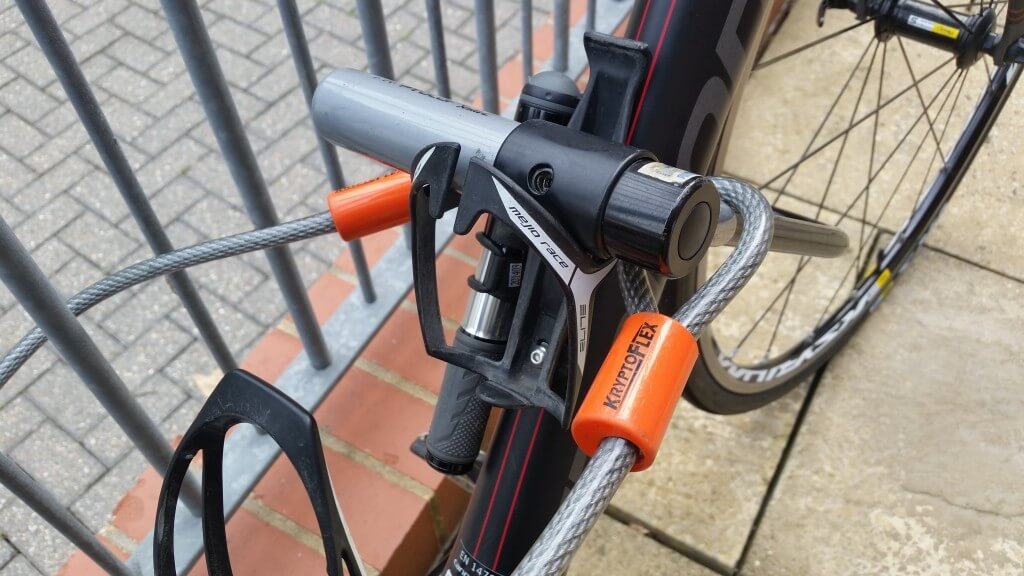 Lastly, get a GOOD bike lock. You may be lucky enough to work somewhere with secure bike storage or place to put your bike. But regardless of this, it is always worth locking your bike up when you are not riding it. The last thing you would want is to finish a hard day's work to find that your pride and joy has gone missing. We would also recommend bike insurance through a company like Cycle Plan (who we use) but a good lock would be the first important step to keeping your bike safe. As with cycle helmets, there are many types to choose from but something with a Sold Secure certification or sticker for extra piece of mind. I use a D-Lock and cable as these give more flexibility as to where my bike can be locked.
Lastly, get a GOOD bike lock. You may be lucky enough to work somewhere with secure bike storage or place to put your bike. But regardless of this, it is always worth locking your bike up when you are not riding it. The last thing you would want is to finish a hard day's work to find that your pride and joy has gone missing. We would also recommend bike insurance through a company like Cycle Plan (who we use) but a good lock would be the first important step to keeping your bike safe. As with cycle helmets, there are many types to choose from but something with a Sold Secure certification or sticker for extra piece of mind. I use a D-Lock and cable as these give more flexibility as to where my bike can be locked.
*AATR Tip: If you are able to, leave the lock at your place of work. This will save you having to carry it in on a daily basis as they can be heavy and take up room in your bag.
I may have missed a few things but the list would run on. At the end of the day, as you start commuting by bike on a regular basis, you will learn what you will need and what you don't need. Just always be sure to enjoy, stay alert and be careful.Ride SafeAATR

